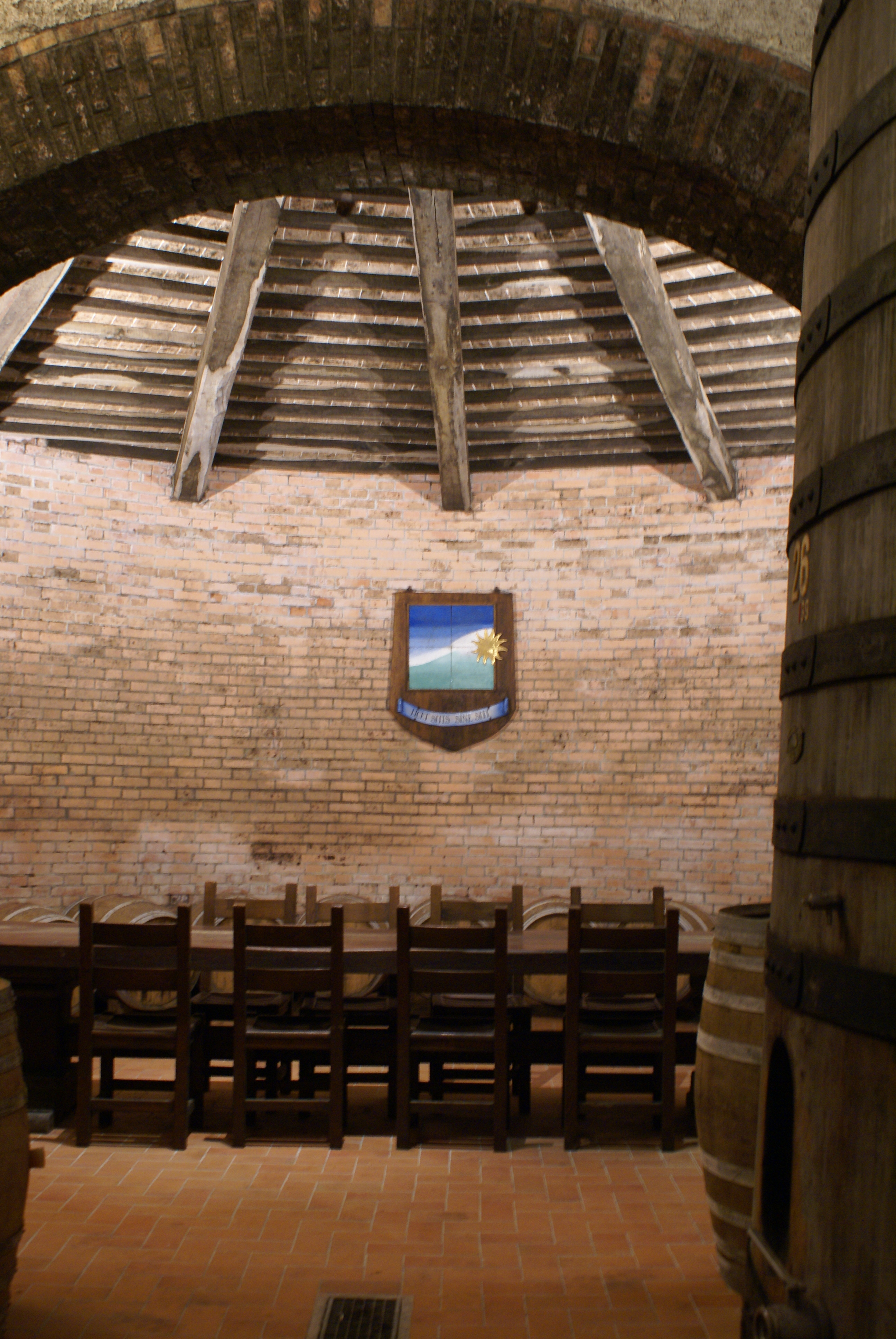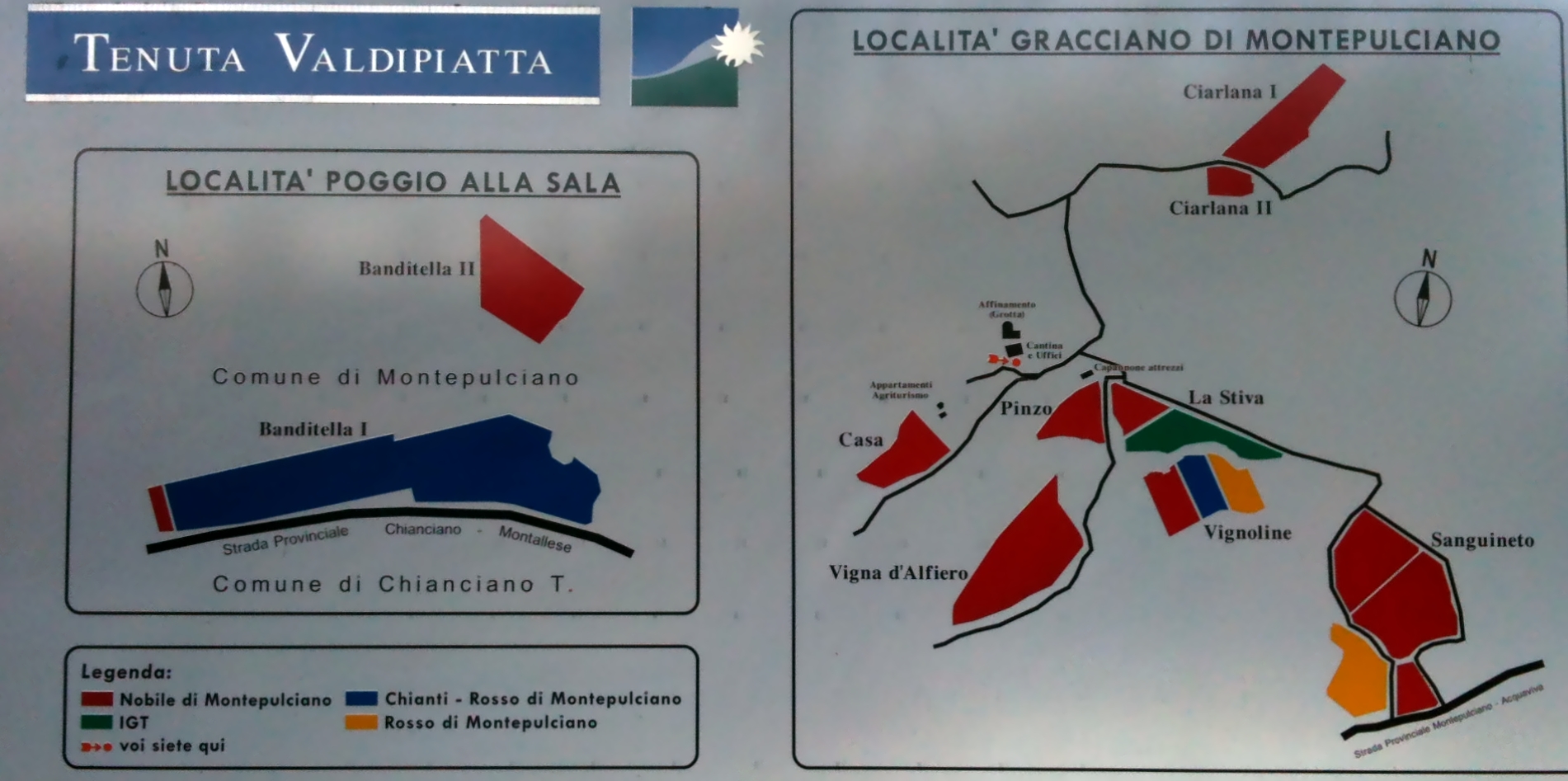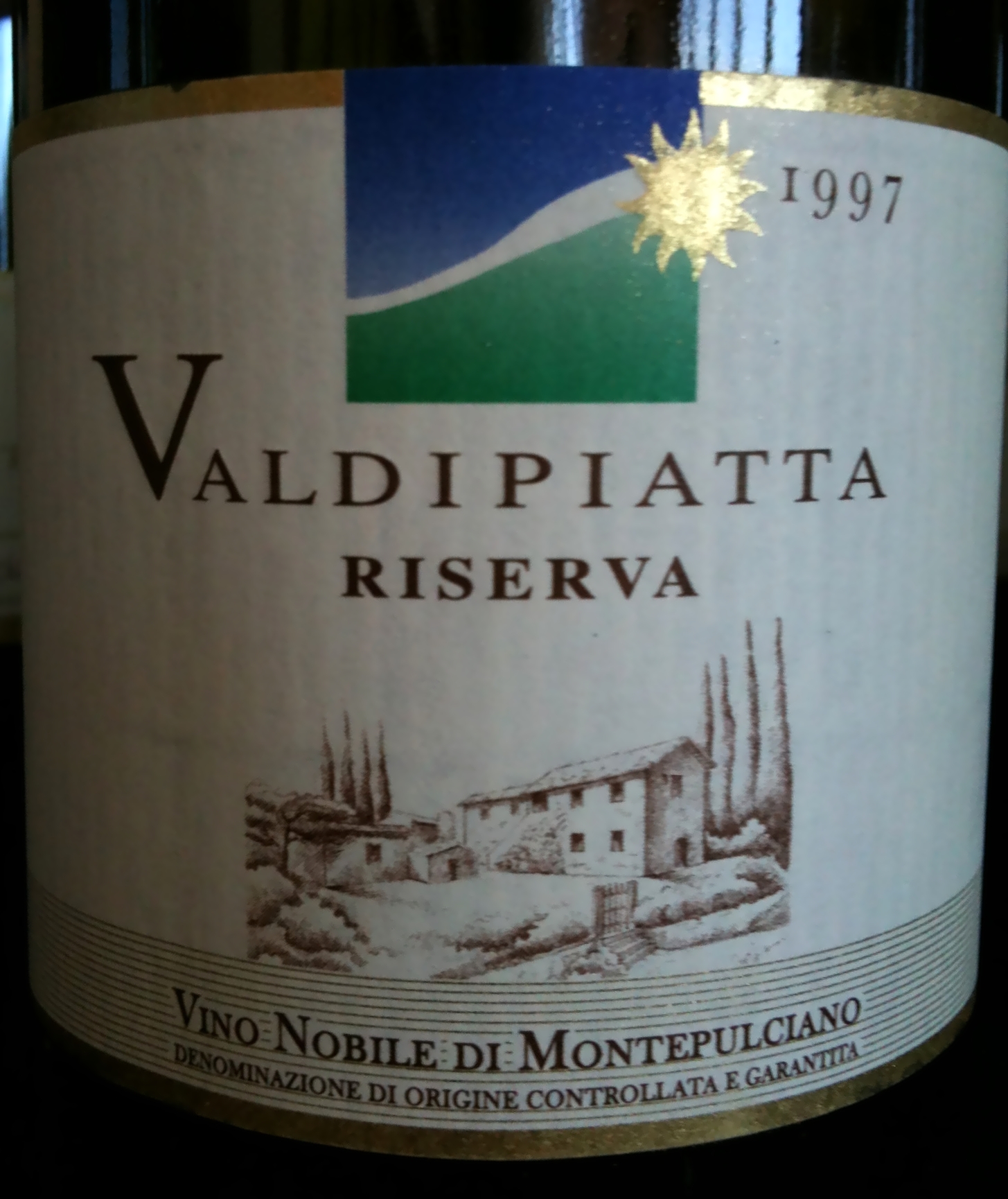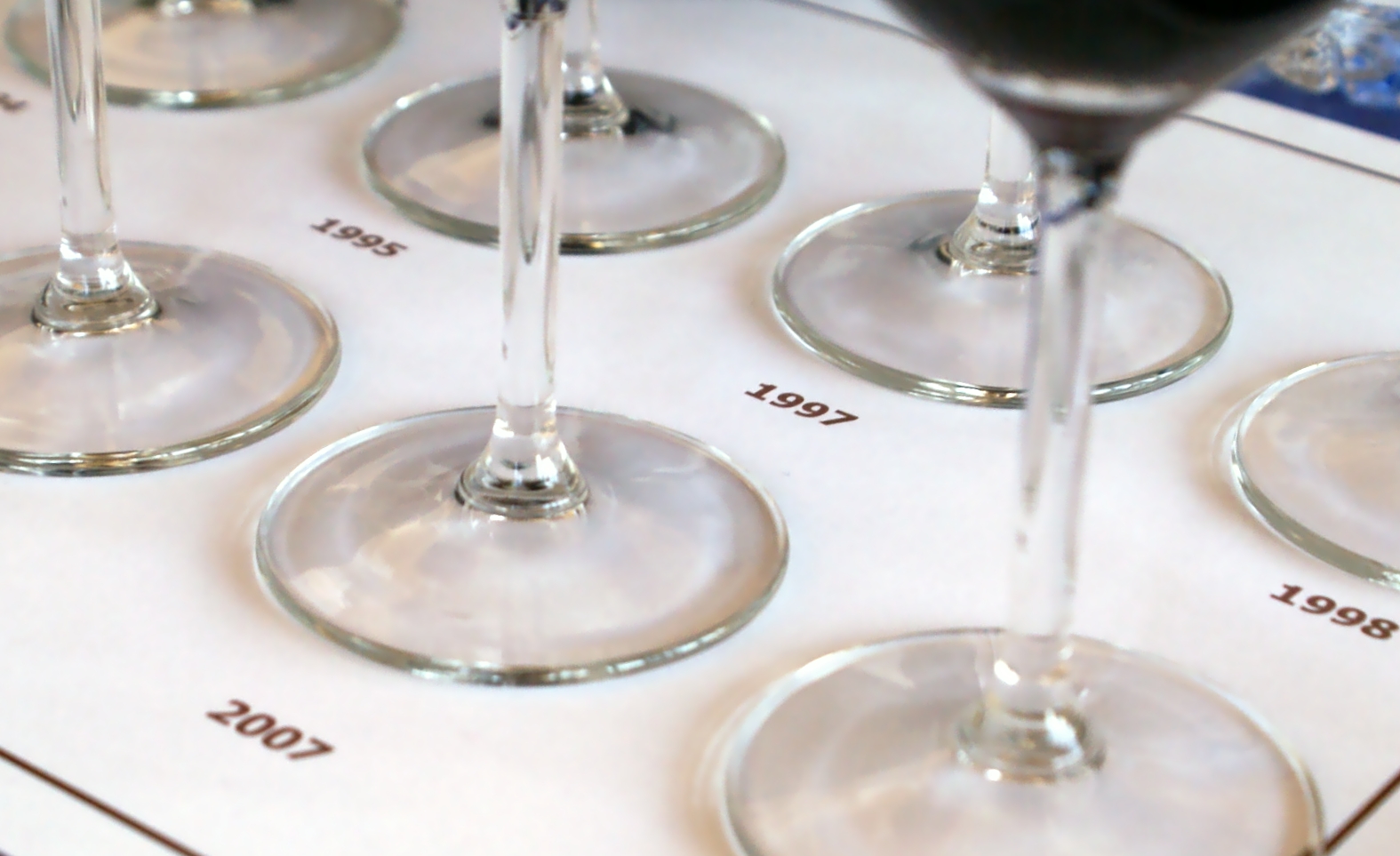Valdipiatta Alfiero 2008–1983
Posted on 27 February 2012
I found many underwhelming wines in Montepulciano but some Vino Nobiles never disappoint: Contucci, Crociani, Boscarelli and Canneto are always very good. That list should also include Tenuta Valdipiatta, a 21-hectare estate purchased in the late 1980s by Giulio Caporali and now run by his daughter Miriam. In a fantastic vertical tasting ranging from the unreleased 2008 to 1983, Valdipiatta confirmed it’s second to no other Vino Nobile.
It was actually my second vertical of their single-vineyard bottling, Vigna d’Alfiero. From five vintages tasted at the winery back in 2008, I surprisingly preferred the hotter years, 2003 and 1997. My impressions now were exactly the same. In dry hot years when other Vino Nobiles can become unpleasantly soupy with punishing dry tannins, Vigna d’Alfiero sings, showing a lovely plump texture of fruit and perfect harmony. The secret is northern exposure. Atypically for Montepulciano, Sangiovese here is planted in a late-ripening shaded parcel and it can actually be handicapped in cooler, less extreme years such as 2004, 1999 and 1998, which on two occasions I found a little out of balance and overtannic.
The 1997 Riserva (not 100% Vigna d’Alfiero with some grapes from the Sanguineto vineyards blended in), on the other hand, is just a beautiful wine with dried herbs overtones to the sweet cherry fruit and with tannic power to spare, this will keep for at least another 5–6 years (unlike most other Tuscan 1997s which are already at peak or past it). The other surprise of the tasting was the 2000, outclassing the 1997 in its hauntingly perfumed nose of black fruit gelée and tangible juiciness, though it has less power and will be less long-lasting. The 1995 Riserva also showed well in an elegant, understated way, though it is a bit more conservative than the 1997. The 1983 Riserva is still much alive with nice malty black tea complexity, although it is less focused and more diluted than the later wines (this one was not produced by the Caporalis).
From the younger wines, the 2008 Alfiero looks extremely promising, with stellar quality of tannins, oak and fruits and also the vintage’s inherent freshness; it is positively the best cooler-vintage Alfiero I’ve ever tasted. I’m thumbs up on the 2006 too which already offers drinking pleasure with its open, flowing, sensual intensity.
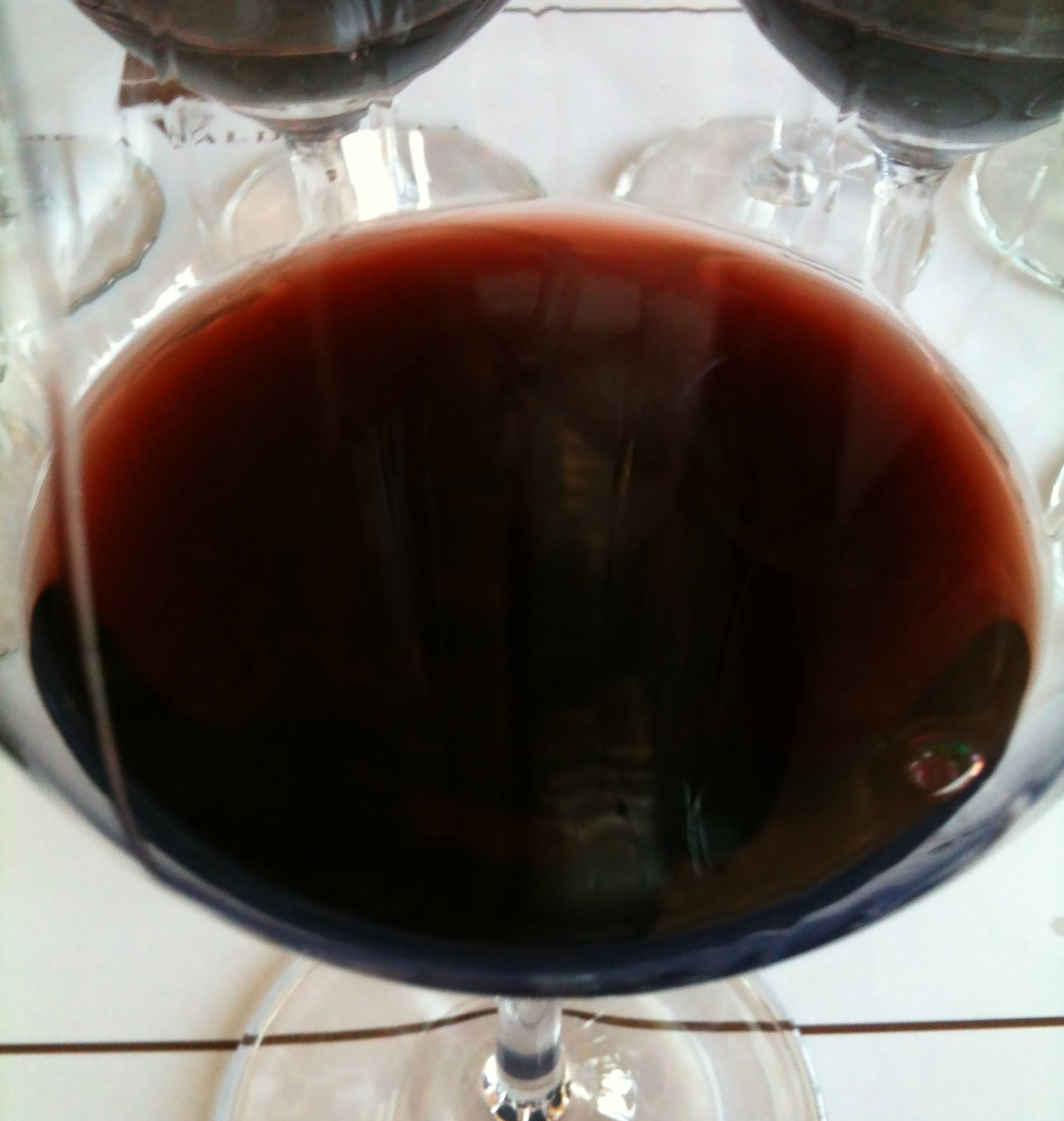
I praised light-hued Sangiovese in my previous posts but Alfiero is naturally very dark. This is the 2006.
Tannins are important in Vigna d’Alfiero both because of their abundance and quality. Exactly where many modern Vino Nobiles underwhelm with their drying, extracted, charmless mulch on the finish, Alfiero always has polish and fine grain. There’s indeed something Bordeauxesque about the chalky freshness this wine evokes, and it comes as no surprise that the œnological consultant here since 1997 has been Prof. Yves Glories of the Bordeaux University, who e.g. introduced a phenolic ripeness control system that has been used ever since. In 2010 the Bordeaux connection has been reinforced with a new consultancy by Éric Boissenot, of Lafite, Latour and Palmer fame. It is an unusual situation in Tuscany where the Italian consultant usually reigns supreme. In a region where tannins management is often a handicap, this visionary decision by the Caporalis is really paying off. At 25€, provided you have the patience to wait, the Vigna d’Alfiero is one of the handful best Vino Nobile buys.
Disclosure
My trip to Tuscany including flights, accommodation and wine tasting programme is sponsored by the consorzios of Vernaccia di San Gimignano, Chianti Classico, Vino Nobile di Montepulciano and Brunello di Montalcino.


